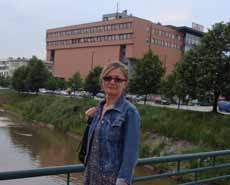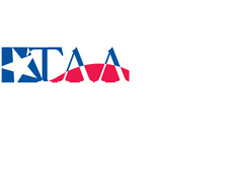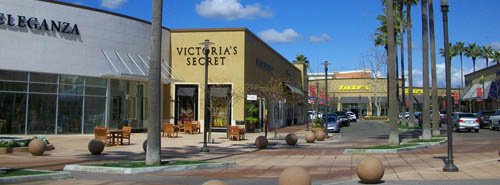April is Fair Housing Month. Created in the aftermath of the assassination of civil rights leader Martin Luther King, Jr., the 1968 Fair Housing Act aimed to eliminate housing discrimination in every neighborhood. The U.S. Department of Housing and Urban Development (HUD) sponsors a month long celebration that began on April 4 – the 44th anniversary of King’s death – with a wreath-laying ceremony at the Martin Luther King, Jr. Memorial on the National Mall. Speakers such as Xernona Clayton, humanitarian, Ruth Martin, National Campaign Director for MomsRising, and Congresswoman Eleanor Holmes-Norton, Congresswoman, evoked King’s fight for the rights of all Americans to live where they please and have equal protection of Constitutional privileges. According to John Trasvina, Assistant Secretary for the Office of Fair Housing and Equal Opportunity (FHEO) and HUD, more than 10,000 Americans alleged that they have been a victim of housing discrimination based on disability, race, gender identity and other factors last year. Trasvina detailed the extensive efforts of HUD to provide fair housing protections, end discrimination, and defend those who have been discriminated again in a post on The HUDdle, HUD’s official blog. Despite the lengthy passage of time, heightened education efforts and much legislation, there is still much to be done to achieve King’s dream. The theme for this year is “Live Free: Creating Equal Opportunity in Every Community.” It speaks to the commitment to ensure that everyone in America can live where they choose regardless of factors such as race, color, religion, gender, sexual orientation, or disability. Throughout the month, there will be fair housing events across the country with speakers sharing the Fair Housing message and revealing the fair housing challenges that affect our nation today. What do you think the Fair Housing Act has accomplished?...
Vesna Uljarevic
Yardi
Vesna Uljarevic’s outlook on how to best approach life’s difficult moments is simple: You should not get upset about things that you cannot control. But the story behind how the Toronto-based technical account manager for Yardi came to have that perspective is a true drama. A native of Sarajevo, the capital city of Bosnia and Herzegovina that was under siege for four years during the Bosnian War, Vesna and her husband Velimir moved to Canada as refugees after fleeing their birth country during the war. Initially, they did not want to leave. But the danger of living in close proximity to bombs and sniper attacks, and no foreseeable conclusion to the conflict, gave them no choice. Velimir left first, to avoid being conscripted into the fight, and Vesna followed several months later in a harrowing escape on foot, and then hitchhiked her way to Croatia. It has been reported that 11,541 people lost their lives during the siege, which was the longest in the history of modern warfare. The Uljarevics lived in Croatia for several years, but jobs were near-impossible to come by. In 1996 the couple applied for a Canadian program that accepted immigrants from war-torn nations as refugees. “When we were accepted it was the best day of my life,” Vesna told us. The program included plane tickets to Toronto (which the refugees must later repay), assistance with housing and food for the first year of residency, and English as a Second Language classes. A work-experience program led to her first job in Canada at a corporate office for United Colors of Benetton, the clothing retailer. She then had a data entry job, and decided that she really wanted to learn more about how software worked behind the front-end user interface. When...
Next Generation Firewalls...
Augmented security
The primal contest between computer user security and the external threat environment will shift with next generation firewalls. Significantly upgraded over the previous state-of-the-art, next-gen firewalls offer improved visibility into the contemporary Web-based network landscape and a much-enhanced capacity to detect advanced threats. But is this truly a generational performance enhancement, or just the same ol’ technology with an added dash of marketing magic? Let’s take a closer look. Traditional firewall performance includes stateful port/protocol inspection, network address translation (NAT), and virtual private network (VPN) integration. Typical services also include directory support (via Active Directory or similar) that authenticates and authorizes applications based on users and user groups. Also common is reputation-based filtering blocks applications that have earned a rep for naughty behavior. This helps discourage phishing attempts, virus infiltration, and additional malware sites and applications. Regardless of the vendor, next-gen firewalls include the following features: Application ID & filtering: This area is where next-gen firewalls really make a difference. Instead of the traditional all-or-nothing port opening approach, next-gen firewalls scan and filter traffic based upon the specific applications. Malicious applications that use non-standard ports to spoof countermeasures can be stopped dead in their tracks. SSL and SSH inspection: Enhanced inspection technology means next-gen firewalls can put SSL and SSH encrypted traffic under the microscope. Decrypted traffic is inspected, filtered, and then re-encrypted. Advanced malicious apps that utilize encryption as a detection countermeasure are no longer a threat. Intrusion prevention: Enhanced versatility and robust traffic inspection abilities provide all the functionality of a stand-alone intrusion prevention system. Most next-gen firewalls include full intrusion detection and prevention capability. In short, next-gen firewalls blend a full-service suite of performances – firewall, intrusion prevention, and additional security capabilities – into a single, efficient, high-performance appliance. The move...
Educating the Future
TAAEF supports industry training
The Texas Apartment Association (TAA) has been an advocate for the rental housing industry for decades. They are also hard at work shaping the future of the industry, and developing the talent of new potential hires, through the TAA Education Foundation (TAAEF). The program started 10 years ago in response to an industry-wide need for qualified candidates to fill available positions. Today TAAEF is focused on supporting formalized training in residential property management (RPM) at all academic levels in higher education and on attracting disciplined talent to our industry, particularly from the military sector. The Foundation’s flagship program at the University of North Texas in Denton includes a fully funded, industry-sponsored permanently endowed professorship at UNT to attract and educate top talent that could enter the profession at – or quickly advance to – the middle management or executive ranks in the industry. TAAEF has also recently provided support for the new University of Houston Graduate Real Estate Program and has been instrumental in the development of a multifamily curriculum. TAAEF also works with community colleges throughout the state to have leasing and maintenance programs available. Austin Community College is the latest to offer a new leasing course. Overarching program objectives include: Supporting the rental housing industry with formal training offerings in residential property management for current and prospective employees. Programs are offered at Texas universities, colleges and community colleges. Promoting careers and advancement opportunities in the rental housing industry. Identify and consider funding for industry education and career-oriented resources benefiting rental housing owners and operators. In addition to its collegiate partnerships, TAAEF also works diligently to raise awareness of the multifamily industry’s many career offerings. As part of that effort, TAA partnered with Time Warner Cable and ApartmentCareers.com to create “Home Sweet Home: Career...
Montie Rouze
Crescent Real Estate
Montie Rouze has had a long and distinguished career as an information technology expert, systems manager and implementation specialist. But she’s also been recognized for a significant contribution to her hometown of Fort Worth, Texas. In 2010, Montie was named Volunteer of the Year for Big Brothers Big Sisters of Texas. Along with her son Cameron, now a 22-year-old college student, she mentors a boy named Erick as part of the Big Brothers Big Sisters program. They became involved with Big Brothers Big Sisters with the support of Montie’s employer, Crescent Real Estate. The company’s Faces of Change program devotes itself to getting employees into community service. Unlike many mentorship partnerings, which can end after one to two years, Montie and Cameron are still active in Erick’s life, more than five years after they first met. Erick, a third grader when the Rouzes’ became involved in his life, will enter high school next year. “It’s been really good for Erick, and he has seen Cameron grow up, graduate from high school and go on to college,” Montie said. “He idolizes Cameron.” Cameron Rouze is now in his fifth year of a landscape architecture program at Oklahoma State University. He visits his “little brother” whenever he’s home in Texas for vacation or school breaks. Doing good things in the community is a natural fit for Montie, who has three grown kids with her husband, Don, and maintained a focused career path in information technology while her children were growing up. She told us that support for working mothers by her previous employer, Trammell Crow Company, made a big difference. She worked for Trammell Crow from 1984 to 1994, and later started her own consulting company, which she ran for 10 years. Trammell Crow Company supported...
Joining the Global Party...
Investing overseas
Global business. Those are catchwords the real estate industry has been grabbing onto for some time now, always as if it’s a current trend. Businesses are expanding globally; U.S. real estate service providers need to follow their clients, and investors purchasing property overseas can be their landlords. And foreign lenders are as much a source of funds as domestic alternatives, whether in the United States or in their own countries. The only thing is, none of this is new. Corporations have been expanding worldwide for decades, and many have long since established themselves in other countries. Foreign investors have been buying U.S. property for years, and plenty of foreign banks have U.S. offices. (Think back to the Japanese purchases of trophy assets in New York and San Francisco in the ‘80s and the “think globally, act locally” slogan of the ‘90s.) Some companies get this. In fact, most of the biggest U.S. real estate service providers expanded overseas 10 years ago if not even before then, following their clients into very fragmented local markets, forging local partnerships and carving out niches. A small number of investors have likewise established themselves in a variety of foreign countries, in some cases likewise breaking new ground (pun intended) with their non-domestic presence and determining new ways to take out capital that in some cases was otherwise trapped behind borders. As for the rest, they are indeed late to join what is rapidly becoming a truly global party, where what’s new is not the idea of expanding into foreign countries or foreign entities investing in the United States but the idea of doing business across multiple continents regardless of your home base. These are truly multinational players, and U.S. real estate participants remain vastly in the minority among...
Neal Gemassmer
Yardi
When it comes to getting away from his ever-present Blackberry, Neal Gemassmer will go to some extreme measures – like signing up for a 7-day, 250-kilometer trek through the Himalayas with a combined 39,000 feet of elevation gain. As Yardi’s Vice President for Asia Pacific & Middle East, Neal is frequently traveling between the company’s four offices in the region. When he takes time off from his busy corporate life, his preference is to really get away from it all – and simultaneously stretch his limits of physical performance. He also goes above and beyond with charitable fundraising efforts that are connected with his endurance challenges, focusing on non-profits that benefit children, women and literacy in underdeveloped countries worldwide. “Everyone can give, and everyone can contribute. You don’t have to give a lot to make a difference,” said Neal. His value set is in line with the corporate philanthropy policy embraced by Yardi, which donates to multiple national and local charities each year. During his 2011 Himalayan Trek, Neal raised $10,000 for a Cambodian children’s hospital, Children’s Surgical Center, which provides rehabilitation surgeries for Cambodian kids that vastly improve their quality of life. He’s also completed extensive fundraising for Room to Read, which provides libraries and reading resources to communities worldwide. His efforts to help others have rubbed off on his family (Neal and his wife Kim, who live in Hong Kong, have three young children). For his last birthday, son Luc, 11, asked his dad if he could make a contribution to Room to Read instead of receiving presents. Neal said that one of the highlights of running through rural Nepal, often on single-track trail used by goats and villagers for travel between tiny communities, was seeing local children who might walk up to two hours one way to attend school. “The kids dressed in their school uniforms, called out namaste, ‘what’s your name’, ‘what is your country’, ‘give me chocolate’ and the occasional ‘give me money’,” he recounted in a blog about the trek adventure. You can read all of Neal’s posts detailing his journey day by day. Professionally, Neal’s enjoyment of his work expanding Yardi’s products and services to the international marketplace comes from helping clients solve problems and bridging communication barriers. His ability to relate and connect with other cultures is a universal standard in his life. And you can expect that if he doesn’t respond almost immediately to your email message, he’s out of Internet range – and probably running all day long. Continuing his adventures, he plans to complete 50K and 100K events in 2012 and gear up for another charity benefit 250K, the Atacama Crossing, in...
Laptop, tablet or ultrabook?...
Business computing options
The campaign towards the perfect device is well underway. Businesses are beginning to accept that they are, perhaps, well beyond the age of the PC. The question now is whether dusk has set on the age of laptops as well. Is the reign of tablets upon us? When it comes to business travel, tablets are the lighter, more space savvy alternative to hauling around a heavy laptop. Beyond lightweight and sleek design, tablets are favored by businesses for their numerous easy-to-use features and shortcuts that access to large quantities of data. Highly customizable apps are growing in popularity with businesses as well. Tablets, however, are currently too limited to serve most businesses adequately. There are two major components that are holding them back: memory and battery life. A Hole in the Armor For a while now, the argument has been that tablets cannot replace laptops for businesses and on-the-go business travelers simply because they do not hold enough memory. For those who need to run programs with ample data, the storage available on tablets remains woefully insufficient. Cloud computing decreases the need for tactile storage space but many consumers have yet to fully embrace the cloud’s potential, both for personal and business applications. The issue of short battery life may soon become moot. Tablet manufacturers are toying with different battery types, overcoming common hurdles such as weight and heat transfer to keep the units compact, powerful, and efficient. At the current moment, there is no tablet that can match a laptop’s performance in a compact package, but that will soon change. The Formidable Foe Though tablet sales are soaring among business and personal consumers, it is unlikely that laptops will be replaced within the next five years. NPD DisplaySearch predicts that by 2017, tablet...
Hot Jobs
Insight from John Cullens
Construction of new apartment stock is booming again in America, and with that growth comes jobs. When new properties are completed, new apartment industry employment opportunities are created. We talked with John Cullens, President and Founder of ApartmentCareers.com, about what’s on the horizon for apartment industry careers. Filling the backlog of development that built up during the economic downturn has construction booming now, and that’s good news for job seekers. “The job growth we’re going to see because of new development that has to happen is going to have our industry grow somewhere in the 20 to 25 percent range in the next 8 years,” Cullens said. “We had a lot of units that needed to be added to the mix.” But the tasks those new hires may be asked to take on could be slightly different from the old industry standards. “We’ve really started to see some shifts in the type of people that are getting hired, especially in some of the newer product. Gone are the days of the assistant manager/bookkeeper position – those tasks are now able to be done in an easier, centralized manner. We’re seeing more and more of a focus on the service side of our industry. How are you going to separate and differentiate your product by value added services that residents want? The best way is to have staff on site to provide those services,” Cullens said. Other trends Cullens has identified through his 12-year-old website and extensive contacts with industry insiders include: –Growth in professional marketing positions. “Most people are embracing social media in some form or fashion and realizing that content based advertising and marketing is a way to get your name out there and have people look at you, and build some community...
Creative, Cool, Commercial
Developer changes a community
Lance-Kashian & Company’s development of major commercial projects in the Fresno area, including the River Park and the forthcoming Fancher Creek and Campus Pointe communities, has been a major part of Fresno’s evolution from a mid-size farming city to major California metro area with amenities aplenty. Whether it’s a shopping center, office park, or a unique residential community mixed close to services and conveniences, each Lance-Kashian project is approached with a creative, out of the box approach. If you’ve ever driven through once-rural Fresno on Highway 41, you probably noticed the Marketplace at River Park, Shops at River Park, and River Park Plaza, clearly visible from the highway. Anchored by national tenants and highly trafficked by Central Valley residents for shopping and dining, the properties are a clear commercial destination for the region. An Edwards Cinema 21-screen theater, located at the Shops at River Park, is among the nation’s top ticket sellers, drawing up to 5 million visitors a year. Generating foot traffic has never been a problem here. Nevertheless, the developer supports regular events like a farmer’s market, live music and dancing entertain shoppers and create a fun and festive ambiance. The company has also made it a point to assist area nonprofits. Lance-Kashian covered the rent and electric bill for an ASPCA pet adoption center at the River Park. During two and a half years, more than 2000 pets went to loving homes. One of Lance-Kashian’s newest contracts, a senior/student housing project with a connection to Fresno State University, will be especially unprecedented. The intent is to attract active older adults who aren’t ready to stop learning, but do want to downsize to apartment-style living. The student residents will live nearby the senior living area and share common shared outdoor community spaces. When they get to class, they might see some of their older neighbors – senior renters will be able to attend classes at Fresno State for free, and an on-site movie theater will cater its programming to their tastes. The commercial part of the development will bring in some of the best of Fresno’s favorite local restaurateurs, which will likely attract diners of all ages for great Mexican, Chinese and Armenian food. The development will also feature work-force housing and a hotel. “Where you can dine and hang out and live all in one spot, it’s pretty unique for Fresno,” said Tracy Kashian, Marketing and Event Coordinator at Lance-Kashian. Lance-Kashian also has another long-awaited project in the works. Fancher Creek, a southeast Fresno project that will include commercial, housing, offices and industrial development, is expected to move forward this year. Fresno’s residential development is pushing east with the extension of Highway 180, and the Fancher Creek shopping center will serve those residents. Apartments will be located above some of the retail stores, and the restaurants will be located around a central lake, like a smaller-scale version of Las Vegas’ Bellagio. Sounds like an exciting time to be living in...
Yardi Acquires LTS
Lead tracking specialists
Yardi has acquired Lead Tracking Solutions (LTS), a Costa Mesa company that developed an innovative lead tracking and lead management software solution. Read the full press release. LTS’ PopCard™ is a Follow-the-Lead solution designed for any industry, according to the company’s website. It uses advertising to attract customers and increase foot traffic, and bridge gaps in lead management, marketing campaigns, employee performance, customer care, and service requests. “With its prospect and customer relationship management capabilities, the PopCard represents our latest addition to our end-to-end multifamily platform,” said Terri Dowen, senior vice president of sales for Yardi. “Automating prospect management with the PopCard will further help our clients increase efficiency and marketing productivity.” Yardi Voyager™ clients will have the opportunity to use the PopCard’s lead-to-lease solution to track prospects and maximize marketing...
Let’s Get Technical...
New YASC offering
Outside of ComicCon, geeking out will typically just garner a few confused looks and questioning tones from those you have inadvertently alienated with your techy banter. But this spring at the Yardi Advanced Solutions* (YASC) you’ll be pleased to know that even the most technical talk will be met with understanding and inspire new-found possibility. Along with the numerous training sessions and social interactions at YASC this year, you’ll also find a new event: Tech Time. Instituted by Sr. VP of ASP Scott Wiener and Director of ASP Remon Amboy, Tech Time grew from a simple “Can my IT team talk to yours?” inquiry from a client a few years back into a full blown opportunity for you to sit and talk through your questions with our experienced professionals in a one-on-one environment. Thinking of rolling out virtualization and not sure where to start? Can’t decide between iPads and Kindles? Want to talk firewalls? Whether you’re a CIO who is curious about how we secure the environment or an end user who wants to know how the environment works, this is your chance for one-on-one consultation about case studies, cloud computing, or infrastructure requirements. If you are interested in a little byte-bonding or perhaps just looking for an excuse to break away, make an appointment by contacting [email protected]. *The Spring YASC 2012 — May 22-24, in Washington, D.C. is now open for registration. The conference provides information about the latest updates to your Yardi products and services, as well as opportunities to meet with CSD representatives, IT staff, senior management and sales...
Affordable and Public Housing News...
Insight from Mark Livanec
Mark Livanec, Vice President of Affordable Housing and PHA Sales at Yardi Systems, is an active advocate for Yardi clients when it comes to state and federal legislation affecting affordable and public housing. Mark serves as secretary of the Board of Directors of the National Affordable Housing Management’s Educational Foundation, which raises scholarship funds for residents in affordable housing developments; he is also a member of the NAA’s Affordable Housing Task Force. Mark was recently in Washington, D.C. to participate in NAHMA’s winter meeting and the NAA Capitol Conference. We asked him to brief us on the latest developments Federal budget – Widespread concern about funding There’s substantial concern about the 2013 federal budget, especially the fact that it has not authorized all affordable housing and public housing programs. SEVRA – the Section Eight Voucher Reform Act – that’s been in place for the last year – is looking at the way housing choice vouchers are being budgeted and reported on. It really has got a many people concerned, especially in the public housing sector as well affordable housing owner-agents, those organizations who are using the housing choice voucher dollars to help pay for resident rent. We are concerned those programs will be cut dramatically. The 2013 budget isn’t even authorizing all of the funds being requested. It’s expected to authorize funds covering only a partial year. There’s a lot of concern about ‘are owners going to be paid on time for voucher payments?’, and ‘are Housing Authorities going to see cuts in the funding and the availability to deliver vouchers?’ Everybody is concerned on the owner-agent side that they will to be able to meet their deliverables. Technology – HUD TRACS 202D update postponed HUD has been working on the TRACS 202D update. ...
Personal Clouds
Are PC's now passe?
Personal clouds seem to be on everybody’s lips these days. Frequently referred to as the new era of personal computing, the clouds are indeed revolutionary, but what exactly are they and what can they do for us? Essentially, personal clouds are online services that allow consumers to store, share, synch, protect and stream data using multiple connected devices such as smartphones, media tablets and PCs over the internet. Gartner, Inc, a technology research and advisory firm known for delivering specialized insight on various IT areas, acknowledges the huge impact of personal clouds on individual users and expects it to replace the personal computer at the center of our digital lives by 2014. “Major trends in client computing have shifted the market away from a focus on personal computers to a broader device perspective that includes smartphones, tablets and other consumer devices,” Steve Kleynhans, research vice president at Gartner, said in a statement. “Emerging cloud services will become the glue that connects the web of devices that users choose to access during the different aspects of their daily life.” As a result, the future looks even brighter for technology developers. According to Gartner, consumers will spend approximately $2.2 trillion on digital technology products and services in 2012, or about 10 percent of the average disposable household income. By 2015, consumers are expected to spend around $2.8 trillion worldwide on connected devices, affiliate services and transferred contents. Regarded as a real breakthrough in the field of information technology, personal clouds promise to deliver smart solutions to experimented digital users. While consumer needs are extremely varied and expectations differ greatly, the general requirements involve availability, security and access to personal contents without complications or restrictions. This is exactly what personal clouds aim to be, a reflection of...
Mentoring the Future
Big Brothers Big Sisters, NC Triangle
Positive role models can make a big impact in the life of an at-risk youth. Among the many non-profits supported by Yardi Systems each year is the Big Brothers Big Sisters of the Triangle in North Carolina, where more than 950 children ages 6-14 are matched with adults who make a difference in their lives. Serving Orange, Durham and Wake Counties, the mentoring non-profit fields a constant need for volunteers, especially men, to support their mentees, or “littles,” as grant coordinator Katie Williams affectionately calls them. “The typical parent who walks in our door is a single mother looking for male mentor for her son,” Williams explained. “We have success stories that will bring you to tears – it works.” The mentors commit to meeting with their little “sibling” at least once per week. The program sponsors both community mentoring, in which the mentors take their charges on outings around town, or site-based mentoring, in which the mentors meet their littles at a school site. Beyond guidance on schoolwork, friendships and personal relationships, sports and goal setting, the mentors are able to support life lessons like the importance of exercise and nutrition. “The focus of our Healthy Child Initiative is to make nutrition and physical activity part of the mentor relationship,” Williams said. “A lot of children we serve are those who are at risk for obesity. Our matches are encouraged to not take their mentors to the movies, but maybe to the park, or on a bike ride, and include physical activity as a positive part of their relationship.” Yardi’s donations have supported the Healthy Child Initiative as well as a new program for BBBS, an education initiative that makes excelling in the classroom a theme emphasized by the mentors and reinforced in partnership with the mentees’ schools. Volunteers are able to talk with the teachers of the child they’re mentoring and learn where they might need out-of-class help. Another program Yardi donations have aided specifically targets the children of incarcerated parents, who benefit greatly from having a positive adult role model while their mother or father is away from home. Mentors are asked to serve for a minimum of one year, but the benefits of the relationships begin appearing after that time, so they’re urged to continue longer if possible, Williams said. “One year is the point at which positive results tend to be seen,” she explained. “The longer you go the more positive impact the relationship has.” Big Brothers Big Sisters of the Triangle is actively seeking new adult volunteers, especially men. Through June 7, they’re on a quest to sign up “100 Men in 100 Days.” If you can help, call 919-850-9772 or find out more at www.bbbstriangle.org ...
From the Trenches
Views of a NYC property manager
William Lluberes has worked in international trade in Chile, had a career in the information technology field, and now makes his living as a New York City property manager, one of the most eclectic real estate jobs known to man. Self-described as someone who “gets bored easily,” William seems to have found one type of work that will never allow that to happen. The world of New York City real estate, and its subregion of apartment leasing, has too much complexity, ongoing change and nuance. New York’s run-and-gun rental climate of low vacancies, tiny apartments and cutthroat pricing is famous around the globe, but the recent economic downturn had major impact on leasing realities for property managers, William told us. Here are some of the insights he shared from the trenches: -Renters in the city have become more frugal with their hard-earned dollars, and they’re now willing to commute a bit (up to 30 minutes) to get to jobs in Manhattan. Fed up with prices, entry level workers are willing to consider neighborhoods like Queens or Long Island City where they might be able to get a 750 square foot unit for around $1600, vs. a 400 square shoebox for $2225 downtown. -Specials and renovated buildings are easier to come by. Property owners, realizing the market has become more competitive, are often undergoing piecemeal renovations of properties with fixtures older than 15-20 years and updating with granite countertops, stainless kitchen appliances, faux cherry wood and more. 13-month leases with one month free at signing are also becoming more common, William said. -Foreign capital. The highest end apartment units in Manhattan and elsewhere, upwards of $2500 a month, are often being rented to visitors and relocated residents from Europe and Asia, he observed,...
Let’s Talk Online Leasing...
With Steve Lefkovits
There’s so much talk in the property management industry right now about the future of leasing that we wanted to dive deep into the topic with the help of Steve Lefkovits, Executive Producer of the Apartment Internet Marketing Conference coming up in Arizona next month. Steve is the author of this interesting piece in this month’s Units magazine called Customers as Kings. He agreed to answer some trending questions from us on the apartment industry’s next big thing: marketing and leasing that’s online, mobile and more efficient than ever. TBS: What do you think is more important – mobile friendly property websites or mobile specific apps, and do you need to create both? SL: I think that mobile web sites are more important for attracting residents and mobile apps have more possibilities for long-term engagement with existing renters. Right now 10-20% of web page views during a search come from mobile devices. Some property management companies report even more, depending on how they’re optimizing their lead flow and how many touchpoints they have. It’s obvious that few people are going to install an app in the middle of their search, their far more likely to use their phones on the fly as part of the search. On the other hand, the possibilities are endless for meaningful engagement in a property-level application. The easy things to think of relate just to the property – paying rent, maintenance requests and tracking packages. I think smart companies are going to start focusing more on lifestyle elements in an app that encourage healthy living and neighborhood engagement. If I built an apartment app today it would have neighborhood services and discounts, recipes, exercise information, attractions and events, holiday information and some type of game that made it fun. ...
New Data Center
Yardi expands in Hong Kong
A new Yardi Systems data center in Hong Kong, announced Tuesday, March 27, will provide secure data hosting and infrastructure support for clients in the Asia Pacific region. “We are excited about the expansion of our infrastructure in Asia Pacific and expanding the value-added services that we can provide clients.” comments Neal Gemassmer, Vice President, Asia Pacific at Yardi. “We continue to invest in the region. We are committed to supporting the strong demand for our products and services and strengthening our drive to develop greater value-add services for our client base across the region.” Features of the Hong Kong data center, as well as all Yardi Systems data centers, include: 128-bit encryption and multiple firewalls, on-site security, video surveillance, biometric screening, nightly backups, off-site transfer of all data, battery backups, a fully automatic fail-over standby generator, seismically-braced server racks, state-of-the-art fire suppression systems and around-the-clock monitoring of servers. Read the full press release on Yardi.com...
Learning from the Stars...
Lessons from industry achievers
The commercial real estate industry can learn a lot from its rising stars. Still young enough to be idealistic and take advice from their mentors, industry under-40—and sometimes under-30—achievers are able to turn it into successful business. Unfortunately, it is human nature to forget or lay aside ideals with age and experience—but doing so may result in unwittingly also passing up potential for even better performance in the long term. Years of interviewing industry up-and-comers has brought to my attention the fact that in reality there are only a few basic tenets that come up again and again, regardless of property sector or business segment: Aside from the obvious hard work and development of market knowledge, these include such characteristics as taking an ethical approach to business (honesty counts); seeking to build relationships with clients over the long term rather than focusing on the deal at hand; striving to please not just the client, tenant or customer but the other side of the table as well—along with passion, creativity, teamwork, accountability, attention to detail and a continued interest in learning and growing. Twenty years ago, such concepts might have been brushed aside as impractical and idealistic. Today’s more sophisticated strategies probably lend themselves better to retaining such a list and making it part of regular business practices. A holistic approach to corporate clients that includes saying “no” to bad or unnecessary deals as well as “yes” to those that may be less lucrative for the broker but smarter for the client pays off in the long run in the form of a longer and bigger relationship. Likewise, a more holistic consideration of a building’s or even a portfolio’s processes can result in greater efficiency and therefore lower cost of operation. Leasing to the right...
Yardi SaaS Answers
New offerings for clients
Yardi Systems has announced that the company will now offer Voyager S in two types of Software as a Service – Yardi SaaS and Yardi Saas Select – for clients in the residential and commercial realms. The move is a logical one for Yardi, since we have a longtime track record of providing cloud services for clients. Over 2,000 businesses are supported via cloud today. Clouds are the most popular vehicle for delivering our products, and it’s exciting to take our clients to the future with a SaaS solution. Like any software transition, the move brings up questions for our clients that we are happy to answer. Below find the responses to some of the inquiries we’ve received so far via our social media channels. How does this differ from the existing ASP product? The closest offering to our current ASP model is SaaS-Select. This deployment orientation provides the client with their own database and their own program version. In other words, these items are dedicated to the client and they’re not shared with others. This orientation allows the client to “select” their own program versions and to upgrade those versions at a pace dictated by the client. The principal difference between ASP and SaaS-Select is that the SaaS environment will house Yardi’s newer version of Voyager, Voyager S. This new version of Voyager contains compatibility with SQL Server Reporting Services, a new look and feel, and, in the future, the possibility for compatibility with browsers other than Internet Explorer. Where do products like Orion, Mobility, and PayScan fit into Voyager S? This is a great question because of our recent announcement regarding our launch of Orion which will be available on SaaS Select; all of our mobility options will work in SaaS or...




















